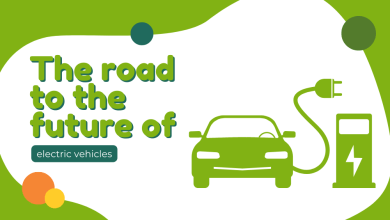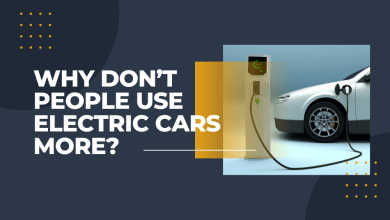What Are the Disadvantages of Electric Cars?

Electric cars come with their own set of advantages and disadvantages. Some of the major ones include: cost, range, and reliability. These are all factors to consider before buying one. The best way to avoid these drawbacks is to compare and contrast the different makes and models of electric cars. If you do this, you will be able to make an informed decision on which model will suit your needs.
Cost
One of the most popular questions is, “How much do electric cars cost?” The answer can vary depending on the model. EVs have many advantages over traditional gas powered vehicles. They are cheaper to own, operate, and maintain. Also, EVs can be charged with electricity from renewable sources.
Electric vehicles are becoming more popular as people begin to realize the benefits of using a fuel alternative. They help save the environment by reducing pollution. EVs also offer long driving ranges on a single charge. Depending on where you live, you can also charge your EV at home. Several urban centers offer credits on EVs.
Some experts believe that battery-powered EVs will be more affordable to produce than gasoline-powered vehicles by 2027. In addition, a number of states are offering rebates or tax credits on EVs.
A recent study found that electric cars cost between $3,500 and $10,500 less to own than their internal combustion engine counterparts. While this cost may seem high at first glance, it’s only a portion of the total ownership costs.
The total cost of ownership is calculated by averaging the average price of a new car, the expected depreciation rate, and the estimated maintenance and repair costs. It’s also worth noting that a typical ICE vehicle owner would spend $16,000 on petrol over five years.
An ICE car requires regular maintenance, including tire rotations, tune-ups, and exhaust work. These costs aren’t included in the price of an EV. This is because EVs require fewer moving parts and they don’t have an exhaust system.
According to a study by the University of Michigan Transportation Research Institute, the costs of operating an EV are roughly half that of a gas-powered vehicle. And, electric vehicles can be less expensive to insure.
Range
If you’re looking to buy an electric car, you’ll need to look into its range. While it might seem like a given, the distance you’ll be able to travel on an electric car may not be ideal for long trips.
There are several advantages to owning an electric vehicle. These include a lower carbon footprint, cheaper maintenance and less emissions. They are also much quieter than their gas powered cousins.
Electric cars are also easier to repair than gasoline engines. The battery on these vehicles is covered by a warranty, and it tends to be highly reliable. However, they can also cost more than gas-powered vehicles, and charging an electric vehicle can be time consuming.
One of the biggest disadvantages of an electric car is its range. Although many models are now available with a range of more than 100 miles, this is still not enough for a long distance trip.
An electric car’s range is determined by the battery and speed of the car. Batteries degrade over time, especially when exposed to extreme heat. Cold weather can also shorten the range of an electric vehicle.
Having a good range is important, but you’ll want to be sure that you’re going to get a charge from a charging station. Some drivers worry that they’ll run out of power before their destination. As with any new technology, the range of an electric vehicle is improving steadily.
You’ll find that the average electric car battery will last between three and ten years. To make the most of your investment, you’ll need to replace your battery about every three to five years.
In addition to the battery, an electric car will need to be recharged on the road. This can take hours or days, depending on the size of the vehicle and the type of charger used.
Charging time
The question of charging time for electric cars is a complicated one, especially since there are so many variables that affect the time it takes to charge an EV. For example, the battery capacity of your EV can have a huge impact on its charging time. Its state of charge (SOC) also affects the length of time it takes to charge your EV.
As technology develops and more batteries come online, the average charge time for an EV should continue to decrease. Currently, an EV battery can take between six and eight hours to fully recharge.
One way to cut down on charging time is to charge part way. This allows your EV to use more of its power, increasing your range and decreasing the time it takes to recharge.
You can also try a fast charger. These newer models have the ability to recharge your EV to 80% in just 30 minutes. They are not standard yet, but companies are working to expand the number of fast chargers that are available to EV drivers.
Ideally, recharging your EV should only take 25-60 minutes. However, the time you spend recharging your EV will vary depending on your battery’s capacity, the size of your EV’s battery and the power output of your charger.
When it comes to the battery’s state of charge, the battery’s best performance is when it is between 20% and 80% full. Once it reaches a point where it is fully charged, it can start to slow down, especially if you’re in a cold climate.
A good charging station should be able to provide an EV with at least four miles of driving per hour. If you are driving in a hot environment, you may find that it takes longer to charge your EV, but this depends on the wattage of the charger and the power input rating of your battery.
Noise
A recent study suggests that a lack of sound from electric vehicles could be a problem for pedestrians. In order to protect passengers, EVs will need to make sounds at low speeds.
However, the research on this is still in its infancy and should be evaluated once the number of EVs on the road increases. Additionally, non-acoustic measures, such as sound-deadening materials, can be used to reduce noise from ICE vehicles.
Another aspect of the current study was to investigate whether a lack of noise influenced the behaviour of pedestrians. In the majority of cases, no change in walking habits occurred, regardless of the location.
The study also looked at the possibility of other road users being injured by an EV. This was done by asking the participants to rate the risk from one to ten. Almost all of them believed that the EV could be dangerous to other road users.
However, they were not sure if the ‘quiet car’ rule would help. Regardless of the outcome, raising awareness of EV dangers remains the most important step towards improving safety.
In addition, the European Union has recently ruled that all EVs need to make artificial engine sounds. The problem of noise from EVs has been a major concern, especially as the number of EVs on the road continues to increase.
As the world continues to become more urban, noise will also become an issue. City planners have made many efforts to mitigate this. Several studies have been conducted to examine the issue, but few have studied the effect of silent EVs on pedestrians.
Adding sound to an EV is not a comprehensive solution, as it will reduce the battery’s range, and it will not necessarily alert pedestrians.
Reliability
The reliability of electric cars is improving, thanks to technology. They have fewer moving parts, which makes them easier to repair. However, they are still less reliable than gasoline or diesel vehicles.
In 2014, 20% of EV owners reported a fault. A study conducted by Which? found that more than half of these problems were software-related.
Despite this, some manufacturers have topped the charts in reliability. Mazda, Toyota and Lexus were among the top brands. Nissan and Kia also scored well.
Reliability of electric cars is improving year after year. Whether you’re buying an electric car or considering it, you’ll want to check the reliability ratings before making a purchase. Electric vehicle batteries are expensive, and repairs can be costly. You may want to check with your insurance company to see if you are covered for battery repair.
Several of the newest EVs are ranked as the most reliable. All-electric Chevy Bolt and Kia EV6 are rated high. These are backed by a 10-year warranty. EVs are gaining popularity, especially in the U.S. where state incentives are helping promote the sales of fully electric vehicles.
However, the EPA found that EVs were 2.5 times more likely to have battery failures than ICE vehicles. Fortunately, most of these problems can be fixed by your mechanic. If the battery is the problem, you may be able to get your car fixed at a service center, rather than at a dealership.
Some of the best-reliable models include the Nissan Leaf and Kia E-Niro. But even those with the highest reliability scores have their problems. Owners have complained about issues with weather stripping, door lights, paint, and more.




